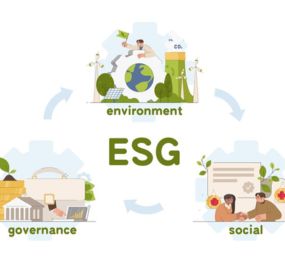The circular economy, a model that aims to minimize waste and maximize resource efficiency, offers significant opportunities for African industries. By transitioning from a linear economy, where resources are extracted, used, and discarded, to a circular one, African businesses can reduce their environmental footprint, enhance resource security, and create new economic opportunities.
Principles of the Circular Economy
- Eliminate waste: Design products and processes that minimize waste and pollution.
- Keep products and materials in use: Extend the lifespan of products through repair, reuse, and recycling.
- Regenerate natural systems: Promote sustainable practices that restore and protect ecosystems.
Opportunities for African Industries
- Waste Management: African industries can develop innovative waste management solutions, such as recycling facilities, composting programs, and waste-to-energy plants. This can reduce pollution, create jobs, and generate valuable resources.
- Resource Efficiency: By adopting resource-efficient practices, African businesses can reduce their consumption of raw materials and energy. This can lead to cost savings, improve competitiveness, and enhance environmental sustainability.
- Industrial Symbiosis: Collaborating with other industries to exchange waste products as raw materials can create mutually beneficial partnerships and reduce the need for virgin resources.
- Product Design: Designing products for durability, repairability, and recyclability can extend their lifespan and minimize waste.
- Renewable Energy: Integrating renewable energy sources into industrial processes can reduce reliance on fossil fuels and lower energy costs.
Strategies for Transitioning to a Circular Economy
- Policy and Regulatory Support: Governments can play a crucial role in promoting the circular economy by implementing policies that incentivize sustainable practices and discourage waste.
- Business Leadership: Companies can take the initiative to adopt circular economy principles and develop sustainable business models.
- Innovation and Technology: Investing in research and development can lead to the development of new technologies and processes that support the circular economy.
- Consumer Engagement: Educating consumers about the benefits of the circular economy and encouraging sustainable consumption habits can drive demand for circular products and services.
By embracing the circular economy, African industries can contribute to a more sustainable and resilient future. The opportunities for economic growth, job creation, and environmental protection are significant. By adopting circular principles, African businesses can position themselves as leaders in sustainable development and create a more prosperous and equitable continent.
To register or learn more about the Forum please check here: https://www.leadventgrp.com/events/esg-and-climate-africa-summit/details
For more information and group participation, contact us: [email protected]
















